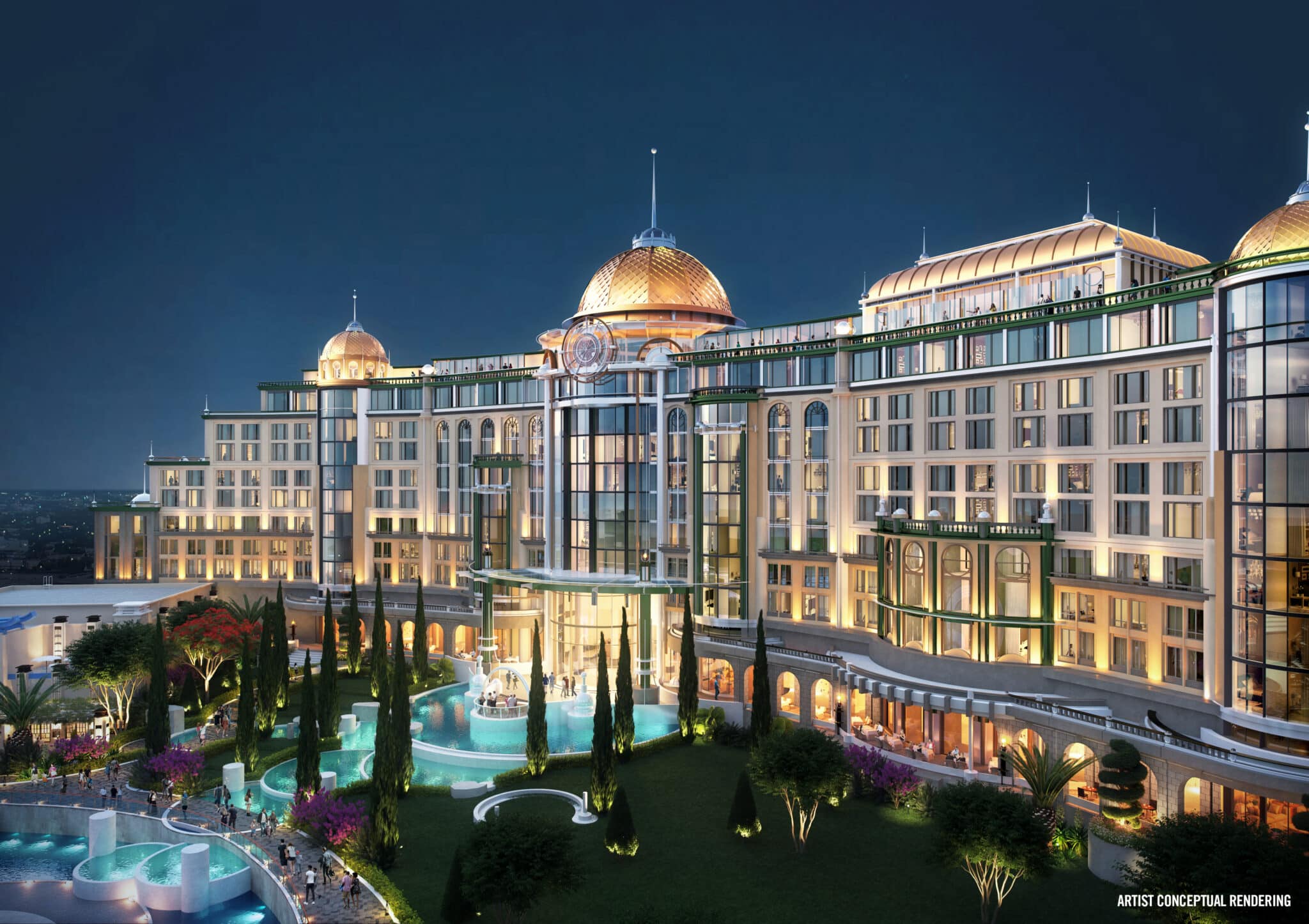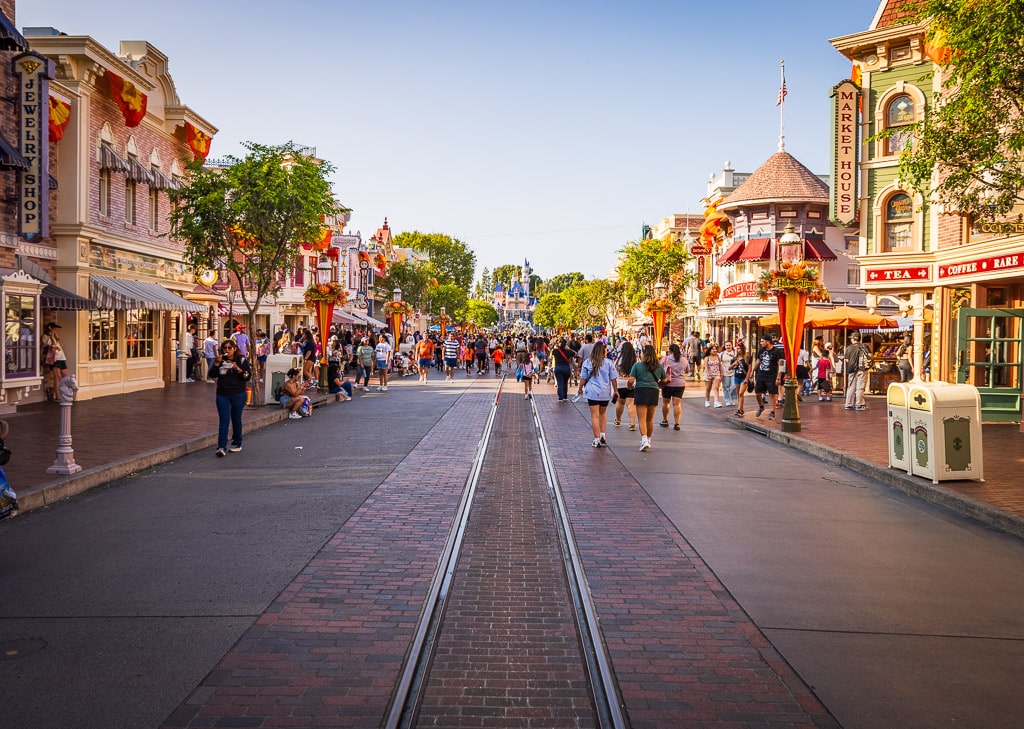
During the Q&A of this week’s quarterly earnings call, CEO Bob Iger was asked about the company’s “fight” with Florida and how that could impact the future of Walt Disney World. This post shares his response about the lawsuits, investments in the state, plus our commentary about the legitimacy of the threat.
It’s impossible to succinctly summarize what precipitated these comments, as the saga has now stretched out over a year, beginning with Bob Chapek making comments about Florida legislation that even Iger concedes were not handled very well. That resulted in the state replacing the Disney-controlled Reedy Creek Improvement District (RCID) board, with one hand-picked by the governor. Prior to the new board taking control, Disney and RCID entered agreements that made national news for use of the “King Charles Clause.”
This handcuffed the new board, leading to more legislation by the state to void the aforementioned agreements and more. That has resulted in two lawsuits, one with Disney Suing DeSantis in federal court and another with the governor-backed Central Florida Tourism Oversight District Board Suing Disney in state court. Earlier this week, the company amended its federal court complaint to include new allegations pertaining to monorail regulations and recent interviews given by DeSantis. That more or less brings you up to speed, and sets the stage for Iger’s latest comments during the investor call…
The lengthy block quote below is Disney CEO Bob Iger’s response to the question: “Florida is such a big part of the value of the company, but you have this political issue that only seems to get more press. It seems like you’re stuck with this fight. So, how should investors think about the risk, both the near-term and long-term business for Disney?”
The case that we filed last month made our position in the facts very clear, and that’s really that this is about one thing and one thing only, and that’s retaliating against us for taking a position about pending legislation. We believe that in us taking that position, we are merely exercising our right to free speech.
Also, this is not about special privileges or a level playing field or Disney in any way using its leverage around the state of Florida. Since there’s been a lot said about special districts and the arrangement that we had, I want to set the record straight on that, too. There are about 2,000 special districts in Florida, and most were established to foster investment and development. We were one of those. It basically made it easier for us and others to do business in Florida. We built a business that employs, as we’ve said before, over 75,000 people, and attracts tens of millions of people to the state.
While it’s easy to say that the Reedy Creek special district that was established for us over 50 years ago benefited us, it’s misleading to not also consider how much Disney benefited the state of Florida. Also, we’re not the only company operating a special district. I mentioned 2,000 others. The Daytona Speedway is one; so is the Villages, which is a prominent retirement community. There are countless others.
So, the goal here is not leveling the playing field. If the goal is leveling the playing field, then a uniform application of the law or government oversight of special districts needs to occur or be applied to all special districts. There’s also a false narrative that we’ve been fighting to protect tax breaks as part of this. But in fact, we’re the largest taxpayer in central Florida, paying over 1.1 billion in state and local taxes last year alone. And we pay more taxes, specifically, more real estate taxes, as a result of that special district.
There was no concerted effort to do anything to dismantle what was once called the Reedy Creek special district until we spoke out on legislation. This is plainly a matter of retaliation while the rest of the Florida special districts continue operating basically as they were. It’s also important for us to say our primary goal is always to be able to continue to do exactly what we’ve been doing there, which is investing in Florida. We’re proud of the tourism industry that we created, and we want to continue delivering the best possible experience for guests going forward.
We never wanted and certainly never expected to be in the position of having to defend our business interests in federal court, particularly after having such a terrific relationship with the state as we’ve had for more than 50 years. And as I mentioned on our shareholder call, we have a huge opportunity to continue to invest in Florida. I noted that our plans were to invest 17 billion dollars over the next 10 years, which is what the state should want us to do. We operate responsibly.
We pay our fair share of taxes. We employ thousands of people. And by the way, we pay them above the minimum wage — substantially above the minimum wage dictated by the state of Florida. And we also provide them with great benefits and free education.
So, I’m going to finish what is obviously kind of a long answer by asking one question: does the state want us to invest more, employ more people, and pay more taxes, or not?
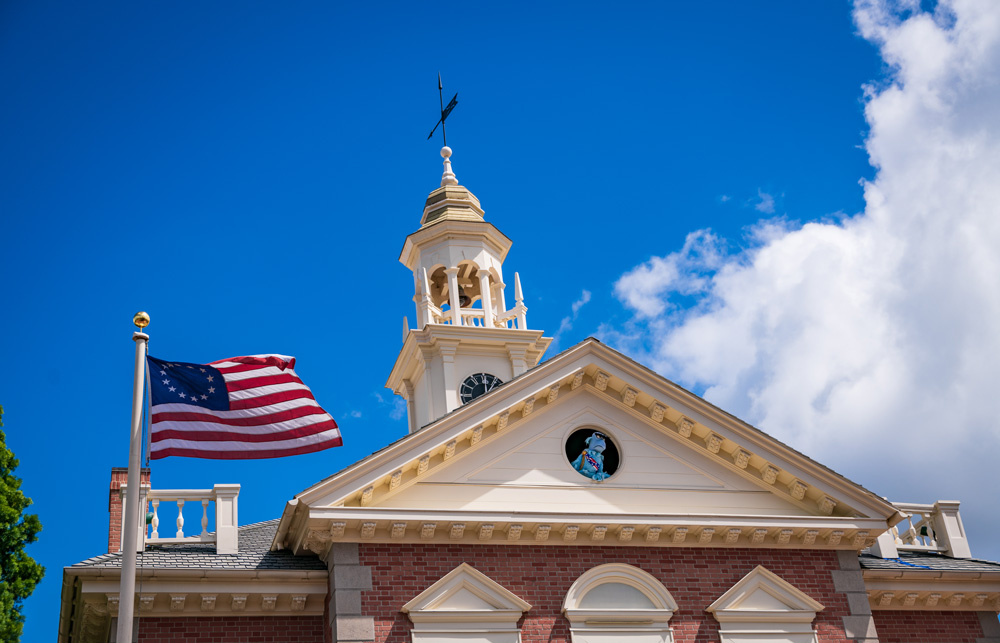
Before turning to commentary, we often start by offering the same caveat to begin each of these posts about Disney vs. DeSantis: do not take anything at face value. This is more about political posturing and theater than it is anything substantive. What the actors involved say is not necessarily what they actually believe.
I’d also caution against drawing any premature conclusions. In part, this goes back to the ‘team sports’ nature of the standoff, and people wanting to believe their ‘side’ is in the right and will prevail in the end. There have been tons of the twists and turns in the Reedy Creek saga to date, and no one has gotten this completely right from the beginning. The only thing that’s predictable here is unpredictability.

Commentary-wise, Iger’s framing of this again struck me as savvy. Although this battle will be fought in courts of law, it will also be waged in the court of public opinion. Chapek did a truly abysmal job of that. His fumbled response managed the remarkable feat of alienating people on both sides of the aisle. It was truly a remarkable feat when you consider how polarized people are today–and yet, we all more or less aligned against Chapek. (Albeit for different reasons.)
Fast-forward over a year later. Chapek is gone, Iger is back, and the original comments giving rise to all of this are in the rearview mirror. As DeSantis has boasted, Disney has “not made a peep” about Florida legislation or issues since the skirmish over a year ago. The only ongoing issues involve the special district and how that’ll be governed.
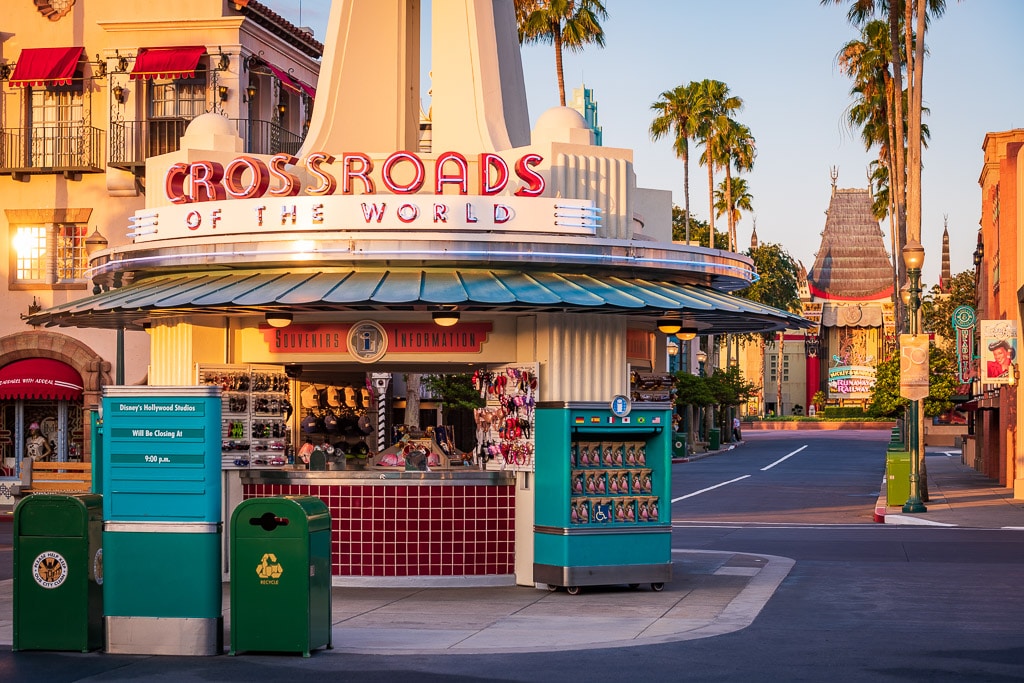
When it comes to public opinion, it’s fair to say that some minds are already made up, and nothing anyone says will sway them one way or the other. It’s almost certain that applies to anyone reading this; you’re either personally invested in this or have followed it closely. It’s also fair to say those in the pro-Disney “bubble” may underestimate just how well this is playing with Republican primary voters, with a clear majority supporting DeSantis in this battle against Disney per polling from March and April.
That’s not everyone, though, and Iger’s answer here is a savvy one. Spinning the state’s approach as being anti-free speech, anti-business and anti-Florida is a sound strategy to sway undecideds. It’s also smart to directly address the special district status and taxes, as there are a lot of misconceptions about both.
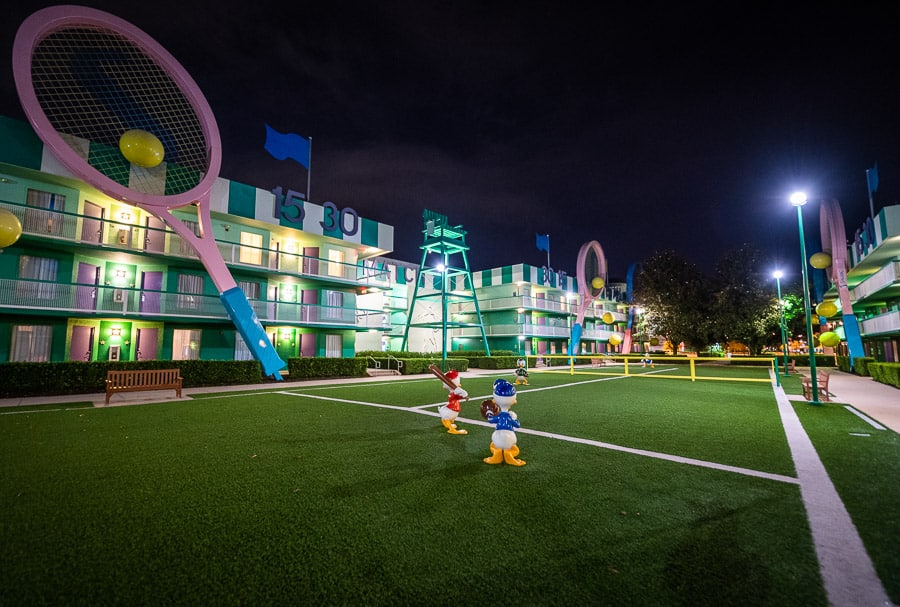
Finally, Iger’s answer concluding with a question of his own was masterful. This essentially puts the ball in DeSantis’s court, who will now be asked by the media whether the fight is “worth it for Florida” when at stake is $17 billion in investments, 13,000 new jobs at Disney, thousands of indirect jobs, and billions of dollars in tourism and tax revenue.
Even when framed that way, it’s hard to imagine DeSantis deescalating at this point. Instead, he will likely have a good answer to Iger’s question, and one that’ll play well with the base. He’ll probably spin that as Disney trying to “hold Florida hostage,” an example of Big Business trying to steamroll the state or subvert the will of voters, and again reiterating that he will win over Disney. There will undoubtedly be more to his answer–DeSantis will be prepped well for the question with an answer that hits the right notes, just as Iger was for the question on the investor call.
That’s a good reminder that so much of this is posturing. We usually offer the above preface about political theater as it relates to Governor DeSantis and his presidential aspirations. However, it also applies to the Disney side of this standoff and Iger’s remarks.

DeSantis wants red meat for the base; Iger wants DeSantis to back down. Since those two goals are incompatible, and Iger’s overtures for a sit-down to deescalate have been rebuffed, his next least-worst option is trying to reframe DeSantis’s actions and statements in an anti-business way that’ll be harmful to the state of Florida and its residents. That, too, is posturing.
Nevertheless, even before Iger’s thinly-veiled threat to reduce investments at Walt Disney World, we were hearing regular reader questions about whether that would happen. Now, based on Bob Iger’s straightforward statement, it would appear that there’s an answer to that question.
However, our answer is still the same. It’s unlikely that the company will actually end investments in Walt Disney World based on the standoff with the state. Let’s break down why…
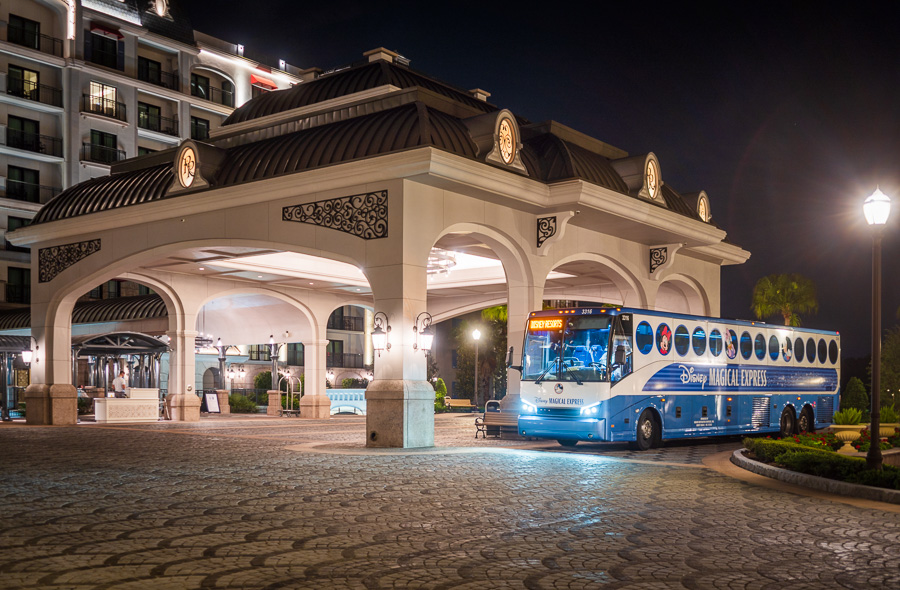
First, no one needs a reminder that Disney is a business. We’ve all had this reinforced time and time again in the last few years with the replacement of free FastPass with paid Lightning Lanes, proliferation of DVC, price increases, and elimination of Disney’s Magical Express. (I maintain that last one was poor and shortsighted even as a business decision, but not the point of this post!)
You’re also probably well aware that Walt Disney World is the company’s cash cow. This has also been reinforced time and time again, most recently on several consecutive earnings calls that discussed record-revenue and per guest spending up 40% of the parks & resorts segment, all while streaming services lost about $1 billion per quarter as they sought to achieve profitability by 2024, tentatively.
It should also go without saying that the company doesn’t build park expansions on a whim. As we point out with the release of every discount, nothing is done out of benevolence or at random. Just as there’s a reason for releasing deals (increase resort occupancy), there’s a reason for building new attractions, lands, etc. All of those projects are expected to offer a return on investment, prompting millions more people to visit Walt Disney World–spending on souvenirs, park tickets, food, hotel stays, and more.

This is mutually beneficial for Disney and Florida. The state collects tax dollars, and tourism to Walt Disney World have spillover effects benefitting other businesses in Central Florida and throughout the state. The ‘Disney Bubble’ is not truly impermeable. This is precisely why the company and the state have had such a good working relationship in the past.
Whether the company invests in Walt Disney World hinges upon whether there’s a business justification for doing so. If it makes sense and they’ll see ROI to expand the existing parks and build new attractions, they will. If not, they won’t. Same as it’s always been, same as it’ll always be.
If there was a plan a few months ago to invest $17 billion over the next decade at Walt Disney World, it’s very difficult to see that changing based on the recent lawsuits, legislation, and public comments. Maybe Iger was posturing then when teasing that investment, or perhaps he’s posturing now by pretending to withhold it. But the company cannot withhold investments out of spite–Iger isn’t Larry David. Doing so would arguably be a breach of its fiduciary duties to shareholders. In short, this is almost certainly a hollow threat.

The only way the company would pause or reevaluate investment is if the latest legislation or public comments have had a material adverse effect on Walt Disney World’s future performance potential or ability to conduct business in the state. Here, it’s theoretically possible that the company views the new CFTOD board as too much of a wildcard, or the potential for future draconian legislation restricting or regulating it as too great.
My personal opinion of the new CFTOD board is not very high. As I’ve written repeatedly, they are not serious people with sincere motivations. However, I also don’t think they have the capacity or convictions to cause a material adverse effect on Disney’s business. I don’t think that’s the end game, either. Again, this all boils down to political theater and presidential aspirations.
Beyond the unpredictability and uncertainty of this circus, the company might contend there’s irreparable brand damage caused by the fight. That this has alienated a certain segment of its core audience, which will now forever forsake its films and theme parks. This has undoubtedly occurred to some degree, but probably not on any meaningful level. No matter what the chronically online might think, most consumers are not that invested in culture wars and won’t deny their kids rite-of-passage vacations over their grievances.
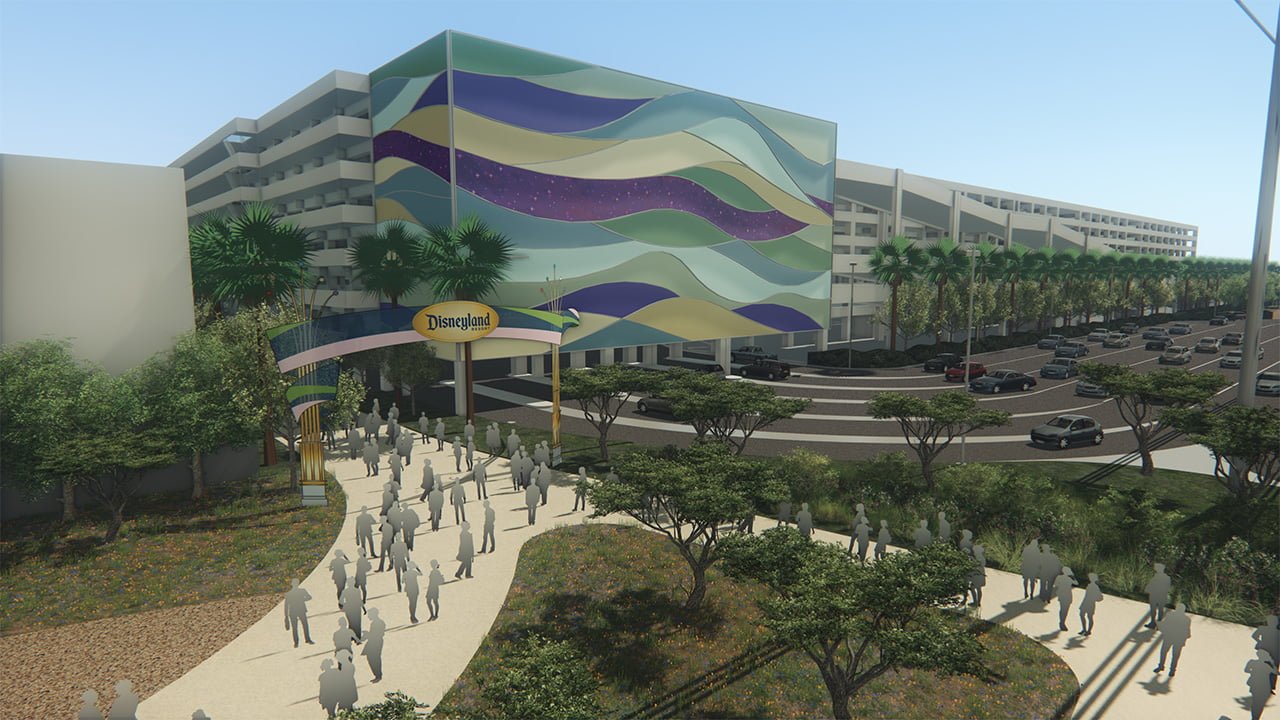
As for what is likely to happen, we’ve actually seen this story play out before–and in the last decade. It didn’t garner nationwide headlines because it wasn’t as provocative, but there was a somewhat-similar standoff with the City of Anaheim. After years of Disney-backed candidates prevailing in elections and supporting business-friendly proposals, the composition of the City Council changed.
Suddenly, the company was receiving much more resistance to its project proposals and sentiment towards previously-approved development incentives soured. As a result, the company cancelled an announced resort and the Eastern Gateway project. It’s unquestionably true that development at Disneyland Resort was set back by several years a result.
Disney’s solution there was to work on repairing strained relations with the community, and also do everything possible to see its preferred candidates prevail in the next election. That’s also arguably what gave rise to DisneylandForward; in the most reductionist terms possible, that proposal essentially seeks to do for the company what Reedy Creek did in Florida. (That’s a very imperfect comparison, but DisneylandForward is not a substantive expansion plan; it’s about autonomy for Disney to build without so much red tape.)

Something similar is likely to happen with development at Walt Disney World and in Florida. Just as they had to “wait out” a then-hostile Anaheim City Council until the next election, the current standoff is presumably over when the Republican primary ends or the pending litigation is decided, at the latest.
It’s possible that the company will enter a holding pattern, hoping that the threat of reducing its investment “reminds” state leaders that the relationship is mutually-advantageous. That doing so convinces everyone that it’s best to drop the bluster and move on to some different culture war. (It’s highly doubtful that’ll work with DeSantis, but it could give statewide politicians pause. Do they want to risk facing a Disney-funded opponent and having to answer questions about this in the next Florida election? The calculus is different for those not running for president.)
The most likely outcome is pausing development of the Imagineering Lake Nona Campus. The company is investing $864 million on that and it’ll bring 2,000 high-paying jobs to the state. This has already been delayed and may have trouble meeting its current target date as-is. Formally hitting the brakes on that and leaving those jobs in California would signal that Disney is “serious” about its investment threat for Florida.
Another possibility is that Walt Disney World delays future announcements until this standoff ends. In Bob Iger Reveals Plan to Invest $17 Billion on Walt Disney World Expansion, we predicted that Animal Kingdom expansion would be announced at the Destination D23 event this fall. If this is still a hot-button issue, I would not expect that announcement to occur. To the contrary, I would not expect any major announcements for Walt Disney World while this battle brews.
To make a long story short, what’s most likely to happen is delayed announcements and timelines potentially pushed back as a result. (It’s also unlikely that anything already under construction is going to be paused. Tiana’s Bayou Adventure, Moana’s Journey of Water, and all the DVC additions will likely proceed as planned.)

However, there are real obstacles to the company commencing construction at Walt Disney World in the near-term that go beyond this. Specifically, Hulu and ESPN need to be sorted out (bought and/or sold), the streaming segment needs to attain profitability or at least stops hemorrhaging ~$1 billion per quarter, and some of the company’s debt should be paid down.
Some or all of those things pretty much have to happen before meaningful CapEx can be spent on Walt Disney World. That alone puts the start of this work in late 2024 or 2025. So in short, the standoff could impact the announcement timeline and might delay some projects slightly, but the bigger impediment to actual construction is all of the above.
Admittedly, this all assume the best case scenario with the standoff continuing to play out mostly in courtrooms. There’s always the possibility that the fight could escalate or the relationship between Walt Disney World and Florida could deteriorate further. If you told me a year ago that Chapek’s hamfisted handling of this would snowball into Bob Iger and the state filing competing lawsuits against one another, that would’ve been a surprise. (Not the Iger returning part–that’s the least surprising bit of this all.) There have been so many twists and turns in this saga that it’s impossible to predict the eventual outcome. However bad it might seem now, there’s always the possibility of the situation worsening.
Ultimately, about the only thing we can safely predict is that Walt Disney World will continue to exist in Central Florida. The company is not going to pack up its flagship theme park complex and move to another state–this isn’t Theme Park Tycoon. That would cost tens (if not hundreds) of billions of dollars that the company does not have, and would not spend even if they did. The governors of California, Colorado, Georgia, South Carolina, etc. don’t think they will, either.
As with so much of this, that’s just more theatrics or political posturing. The company is playing the long game with an eye towards its long-term future in Florida. Walt Disney World will outlast Governor DeSantis and every statewide politician in Florida; if worst comes to worst, they’ll work to get more friendly politicians elected. Wouldn’t be the first time.
Planning a Walt Disney World trip? Learn about hotels on our Walt Disney World Hotels Reviews page. For where to eat, read our Walt Disney World Restaurant Reviews. To save money on tickets or determine which type to buy, read our Tips for Saving Money on Walt Disney World Tickets post. Our What to Pack for Disney Trips post takes a unique look at clever items to take. For what to do and when to do it, our Walt Disney World Ride Guides will help. For comprehensive advice, the best place to start is our Walt Disney World Trip Planning Guide for everything you need to know!
YOUR THOUGHTS
What is your reaction to the latest developments in the battle of Florida v. Disney? Think Bob Iger hit the right notes during the earnings call, or do you agree with the governor’s approach? Think the company really will withhold investments in Florida, or is this a hollow threat? Is this one of this no-win situations where everyone loses the longer it’s drawn out? Keep the comments civil, and avoid personal attacks or perpetuating pointless culture wars. Respectfully debating the change is totally fine, but don’t attack others or troll for controversy. That’s why Facebook was invented.



